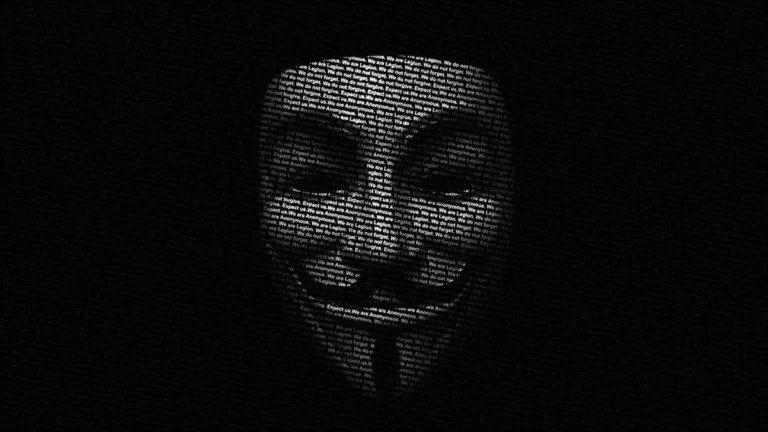When it comes to the internet, anonymity has always been both a blessing and a curse. On one side, it gives people the freedom to express themselves openly without fear of judgment. On the other, it can also be misused, allowing harmful behavior to flourish. One of the spaces where this paradox is most evident is AnonIBs—short for anonymous image boards.
These platforms have carved out a unique corner of the digital world. Unlike traditional social networks, which often require accounts, personal details, and curated online identities, AnonIBs flip the script by removing that layer of personal exposure. But what exactly are they? How do they work? And why have they been both celebrated and criticized over the years? Let’s take a closer look.
What Are AnonIBs?
At their core, AnonIBs are online image boards where users can share images, text, and discussions without attaching their identities. Unlike platforms such as Facebook or Instagram, which revolve around personal branding and social connections, AnonIBs focus entirely on the content. The idea is simple: share what you want, discuss freely, and leave without anyone knowing who you are.
The lack of usernames or profiles means the content itself is the main attraction. Whether it’s a funny meme, an artistic sketch, or a niche discussion, the appeal lies in the raw exchange of ideas and visuals without any baggage of personal identity.
The Origins of AnonIB Culture
AnonIBs didn’t appear out of nowhere. They grew out of the wider internet culture of forums and message boards. Sites like 4chan, 2chan, and other early image-sharing communities influenced the development of anonymous boards. These spaces were attractive to people who wanted to break free from the polished, identity-driven online platforms that were becoming the norm.
Over time, AnonIBs developed their own culture—one that valued creativity, irreverence, and freedom. But as with any unregulated space, this culture often walked a fine line between fun expression and controversy.
Why People Are Drawn to AnonIBs
There are a few big reasons why users are attracted to AnonIBs:
1. Anonymity Creates Freedom
Not having to log in or attach your name gives people a sense of liberation. They can share thoughts, jokes, or images they might not otherwise post on platforms linked to their real identity.
2. A Focus on Content, Not People
On most social media platforms, popularity is tied to influencers, followers, or personal networks. AnonIBs shift that focus to the content itself. It doesn’t matter who you are—it only matters what you post.
3. Niche Communities Thrive
Because there’s no algorithm pushing mainstream content, smaller communities and niche interests often flourish. Users can find discussions or images related to highly specific hobbies, aesthetics, or cultural quirks.
4. A Sense of Rebellion
AnonIBs carry a countercultural appeal. In a digital age where privacy feels scarce, and corporations track almost every click, the ability to post freely without leaving a trace feels rebellious and refreshing.
The Double-Edged Sword of Anonymity
Of course, the same qualities that make AnonIBs appealing also raise serious challenges. Anonymity removes accountability, which means harmful or inappropriate content can surface just as easily as wholesome or creative posts.
Some boards have faced criticism for hosting offensive material, harassment, or even illegal content. This reputation has led to significant debate about whether the benefits of total anonymity outweigh the risks.
For many users, the key lies in moderation. A community-driven approach—where users flag inappropriate content and set their own norms—can make anonymous spaces more sustainable. But without some level of oversight, the darker side of AnonIBs can quickly overshadow their potential.
How AnonIBs Compare to Other Platforms
It’s helpful to compare AnonIBs to mainstream platforms like Reddit, Instagram, or TikTok:
- Reddit still values anonymity, but users often build recognizable pseudonyms and reputations.
- Instagram and TikTok are driven by personal branding, where likes, follows, and influencer culture dominate.
- AnonIBs, on the other hand, strip away all personal recognition, leaving only the image and the thread of discussion.
This makes them unique. While Reddit and Instagram create “digital identities,” AnonIBs resist that idea entirely.
The Community Aspect of AnonIBs
Despite being anonymous, communities on AnonIBs are surprisingly tight-knit. Regular posters recognize styles of humor, common posting patterns, and shared references, even without usernames. Threads can create mini-communities that form and dissolve in a matter of hours or days.
This transient nature is part of the charm. Unlike long-term online friendships, AnonIBs offer fleeting interactions—connections that are meaningful in the moment but leave no lasting footprint.
The Positive Side of AnonIBs
While it’s easy to focus on the controversies, it’s important to recognize that many people use these boards for positive purposes:
- Artistic Sharing: Artists post sketches, edits, or photography without worrying about being judged by name.
- Humor and Memes: AnonIBs have been hotbeds for internet memes and humor that later spread to mainstream culture.
- Discussion Spaces: Niche hobbies, underground music, or alternative fashion often find a home on these boards.
- Privacy Respect: For users concerned about surveillance or data tracking, anonymous boards feel safer.
Challenges and Risks of AnonIBs
On the flip side, there are significant risks that both users and platforms face:
- Legal Issues: Some boards have faced shutdowns due to illegal content being shared.
- Harassment: Without accountability, cyberbullying and harassment can occur more easily.
- Ephemeral Nature: Because boards often get deleted or reset, valuable content may disappear overnight.
- Reputation Problems: Even boards with mostly positive content can get painted with a broad brush due to the actions of bad actors.
AnonIBs and the Future of Online Anonymity
The rise of AnonIBs speaks to a larger conversation about the future of the internet. In a world increasingly dominated by surveillance, corporate algorithms, and digital footprints, people crave anonymity.
While mainstream platforms push for verified accounts and identity-driven interactions, anonymous spaces remind us that sometimes, people just want to share without leaving a trail. The question is: how do we balance that freedom with responsibility?
Some believe the future lies in hybrid platforms—spaces that offer anonymity but also enforce strict moderation against harmful content. Others think anonymous boards will remain niche, serving only those who deliberately seek them out.
Should You Explore AnonIBs?
If you’re curious about anonymous communities, AnonIBs can be fascinating to explore. But it’s important to approach with caution:
- Stay mindful of the type of board you’re on.
- Avoid posting anything personal, since anonymity goes both ways.
- Respect the culture of the community you’re engaging with.
- Be aware that some boards may contain content you’d rather not encounter.
For many, the experience is like stepping into an unfiltered version of the internet—raw, unpredictable, and constantly shifting.
Final Thoughts
AnonIBs occupy a unique place in digital culture. They highlight both the best and worst of online anonymity. On one hand, they empower creativity, niche communities, humor, and free expression. On the other, they face challenges with accountability, moderation, and reputation.
What’s undeniable is their cultural impact. AnonIBs have influenced memes, internet humor, and digital communities in ways that ripple far beyond their boards. Love them or hate them, they represent a side of the internet that refuses to conform to polished, identity-driven platforms.
In a world where everything we do online is increasingly tracked, analyzed, and monetized, the existence of anonymous image boards like AnonIBs is a reminder that not everyone wants to be seen, recorded, or remembered. Sometimes, all people want is a space to post, laugh, share, and move on—without leaving a name behind.











